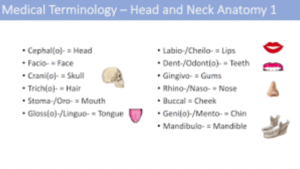Medical Documents Every Senior Should Understand

Ever stare at a medical form and think, “Am I supposed to understand this?” You know what? You’re definitely not alone. For a lot of older adults, medical documents for seniors feel like decoding a foreign language—one with no subtitles. But here’s the truth: those papers are way more important than they look.
They’re not just there for your doctor or your insurance company. There for you. Part cheat sheet, part safety plan, and part voice—especially when you can’t speak up. So, let’s break them down together, nice and easy. No stress, no complicated words (unless we explain them), and definitely no judgment. That’s why understanding medical documents for seniors isn’t just helpful—it’s essential.
Why Medical Paperwork Isn’t Just Red Tape

Let me explain something right off the bat: senior healthcare paperwork might feel like it was made to frustrate you, but it’s actually there to protect you. It tells your doctors what you take, what you’ve been through, what you want, and what you absolutely don’t.
Honestly, it’s like the GPS for your health journey. Without it? You’re just guessing. And when it comes to your body, guessing isn’t the best strategy.
And here’s the kicker—this paperwork isn’t just about managing sickness. It’s also about preserving quality of life. Knowing when to say “yes” to a treatment and when to say “no thanks” is a huge part of aging well. Reviewing medical documents for seniors regularly helps keep your care aligned with your values.
1. Medication List: The MVP of Your Medical Files

If there’s one thing that should be taped to your fridge, kept in your wallet, or saved on your phone—it’s your medication list.
It’s your go-to. The MVP. And no, it’s not just for prescription meds. Include vitamins, supplements, over-the-counter stuff—yes, even that turmeric your cousin swears by.
Here’s the thing: every time you add or change something, you should run the list through an interaction checker. Think of it like checking the weather before a road trip. You don’t want any nasty surprises.
Story time: my neighbor Joe, 79, added a “natural” sleep aid to his routine. Next thing you know, he’s woozy and having trouble walking. Turns out it didn’t mix well with his blood pressure meds. A quick glance at an interaction checker could’ve saved him a hospital visit. Just saying.
Bonus tip? Keep a small notepad or use your phone’s notes app to jot down how each medication makes you feel. Feeling extra sleepy? Noticing headaches? Those little details help your doctor make better decisions—and help you advocate for yourself.
This is where medical documents for seniors really shine—giving your care team the full picture.
2. Prescription Refills: Tiny Forms, Big Consequences

Refill forms seem basic. But you know what? They can sneak up on you. Miss a signature, get the wrong dosage, or forget to send it in—and boom, no meds for a week.
Here’s a little nudge: tie your refill forms to your med list. If they don’t match, something’s off. And if there’s a new prescription, yep—check it again with your favorite interaction checker.
Also, if you’re using mail-order services or automatic refills, it’s worth checking that your pharmacy hasn’t made a substitution without telling you. A small switch—like from brand-name to generic—might work fine for some, but others notice a difference. Keep an eye on it.
Remember, up-to-date medical documents for seniors include accurate refill and dosage records.
3. Advance Directive: When You Can’t Talk, This Does It for You

No one likes thinking about worst-case scenarios. But honestly? This one matters.
An advance directive (or living will) lets everyone know what kind of treatment you want if you’re unable to make decisions. It might include things like “no feeding tubes,” “yes to pain management,” or “only CPR under certain conditions.”
Here’s a common line: “I’ll do it later.” But later has a way of showing up early. Filling this out now is a gift to your family. It tells them, “You don’t have to guess what I want. I’ve already spelled it out.”
And while we’re at it—review it every year. Life changes, health changes, and so can your choices. Consider checking in around your birthday as a little self-care ritual. This is a central piece of medical documents for seniors and should never be overlooked.
4. Power of Attorney: Picking Your Health Wingman

Alright—this one’s about choosing your person. The one who’ll speak for you when you can’t. Officially, it’s called a healthcare power of attorney. But really, it’s your voice in someone else’s mouth.
Choose wisely. Pick someone who can handle pressure, ask questions, and not get rattled in a hospital hallway. Maybe it’s your daughter. Maybe it’s your best friend who’s calm in a crisis. Talk it over. Then talk it over again.
And show them your important medical papers for elderly planning. Because having the authority is one thing—knowing how to use it? That’s another story.
If you’re part of a large family, take time to explain to everyone who you’ve chosen and why. It avoids misunderstandings later and reinforces trust.
5. Medicare Summary Notices: Not Just a Snooze-Fest

Yes, they look like a stack of blah. Tables, codes, and more paper than a small novel. But those Medicare Summary Notices are more helpful than they seem.
They show what services were billed, what Medicare paid, and what might still be up in the air. If something looks fishy—a test you never had, a visit you didn’t make—circle it. Call someone. Fraud happens. Catching it early? That’s power.
Honestly, even if you only read through every other one, you’re already ahead.
Make it easier by keeping a small folder labeled by quarter or season: Spring, Summer, Fall, Winter. Filing this way keeps you from feeling buried in paperwork.
6. EOBs: Insurance Jargon, Translated

Now here’s the cousin to the Medicare notices—your Explanation of Benefits, or EOB.
If you’ve got private insurance, you’ve seen these. They look like bills, but they’re not. They’re more like a behind-the-scenes snapshot of what got charged and who paid what.
The trick? Compare them with the Medicare notices. Sometimes you’ll spot duplicates or strange charges. And hey, one phone call might save you $200.
If reading them feels like you need a secret decoder ring, ask a trusted friend or family member to go through them with you over coffee. You’d be surprised how a fresh pair of eyes can spot something you missed.
7. Immunization Records: Yep, Still Relevant

Think immunization records are just for kids? Think again. If you’re heading to a rehab facility, getting surgery, or even just traveling, you might need proof of vaccinations.
COVID. Pneumonia. Shingles. Flu. These matter.
Ask your provider for a clean printout. Fold it into your senior healthcare paperwork folder. Or hey, stick it in a Ziploc in your suitcase if you’re heading out of state.
If you’re old-school, a laminated card in your purse works just as well.
8. Hospital Discharge Instructions: Your Recovery GPS

Getting sent home after a hospital stay feels great—until you realize they handed you 15 pages of instructions.
Don’t stuff it in a drawer. That packet explains what to do, what to avoid, and what to watch for. And those med changes? Compare them to your old list. Then run the new ones through your interaction checker.
Let me be clear: this isn’t just homework. It’s your post-game strategy.
And don’t be shy about calling the hospital if something seems off or unclear. Post-discharge nurses are often available just for this reason.
9. Lab Results: More Than Just Numbers on a Page

Blood tests, X-rays, and all that jazz. You get a printout, and suddenly you’re swimming in numbers, red flags, and medical-speak.
It’s okay to be confused. Just don’t toss them. Ask your doctor, “What does this mean for me?” Jot down the answers. Keep those results in a folder. Over time, they tell a story.
A story your future doctor (or you) might be grateful to read.
If you like tech, some apps let you plot these numbers on a graph. It’s not just useful—it’s empowering.
10. The One-Page Medical Summary: Small Sheet, Big Deal

One page. That’s it. Your health history, meds, allergies, surgeries, doctors, and emergency contacts—all on one piece of paper.
Tape it inside your medicine cabinet. Keep one in your wallet. Share it with your caregiver. If something happens, that page becomes your fast pass to better care.
It’s easily one of the most valuable medical records older adults need—and it costs you nothing but a few minutes to create.
Need help building one? Many clinics will print a version during your annual wellness visit. Just ask.
Let’s Talk Storage: Keeping It Together (Literally)

Whether it’s a binder, an accordion folder, or a color-coded file box—get your papers in one place. Label sections clearly: meds, labs, legal, insurance, doctors.
If you’re tech-savvy, apps like Evernote or Dropbox can work too. Just make sure someone else—your power of attorney, a family member, your neighbor Susan—knows where and how to access it.
Want a quirky touch? Use stickers, color codes, or seasonal tabs. It may sound silly, but anything that makes you want to keep things organized is a win.
A Few Pitfalls to Watch For
You’ve made it this far, so here’s a gentle heads-up:
- Don’t let your medication list go stale
- Don’t throw away notices without checking them
- Don’t skip filling out your power of attorney or advance directive
- And please—don’t skip the interaction checker. It takes two minutes and saves a world of hurt
And one more thing—review everything annually. Pick a day like your birthday or a seasonal change. Make it a habit.
Wrapping It Up: You’re in the Driver’s Seat
You know what? Understanding medical documents for seniors isn’t about becoming a doctor. It’s about being in the loop. About saying, “I’ve got this,” instead of “I had no idea.”
So go ahead. Grab that binder. Print your med list. Run those prescriptions through the interaction checker. You don’t have to do everything today—but take the first step.
Your future self (and probably your doctor) will thank you.
And if you want that checklist we mentioned? Say the word. I’m ready when you are.
External Link Suggestions:
-
https://medicare.gov – Understand your Medicare Summary Notices
-
https://drugs.com – Use a free interaction checker
-
https://caringinfo.org – Advance directives and planning forms
-
https://mychart.com – Access lab results and records online
Internal Link Suggestions:
Frequently Asked Questions (FAQ)
1. Where can I get a copy of my immunization record?
Ask your primary care provider or check your patient portal. Some states have vaccine registries online. You’ll also find instructions at www.evaluatemymeds.com.
2. What’s the difference between an Advance Directive and Power of Attorney?
Advance Directive = what you want.
Power of Attorney = who speaks for you.
You need both—and you can download them at www.evaluatemymeds.com/free-forms.
3. Is a printed medication list enough?
Yes—but only if it’s up to date. Store it in your purse, car, or phone and review it after every med change.
4. Should I include vitamins or herbs in my med list?
Yes! Herbal remedies can interact with prescriptions. Run everything—yes, even turmeric—through an interaction checker at www.evaluatemymeds.com.
5. How often should I update my medical paperwork?
At least once a year or after a major health change. Tie it to a holiday, birthday, or even tax season to remember.








